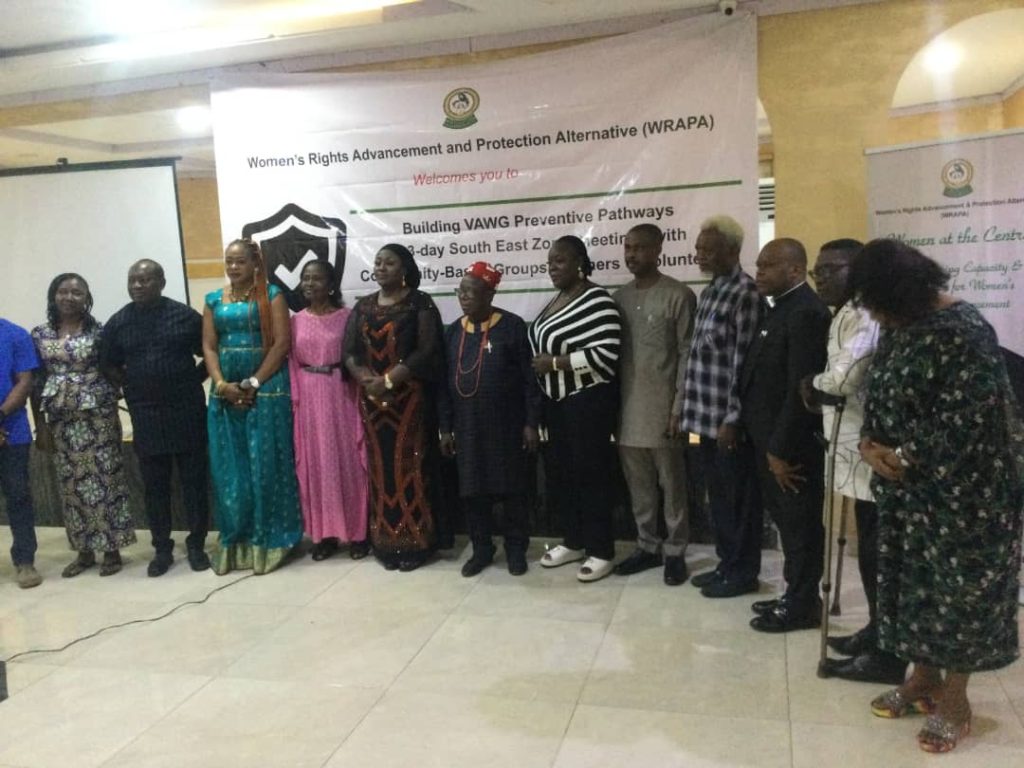Lawrence Nwimo, Awka
Stakeholders in the South-East including traditional rulers, religious leaders, media, and human rights activists, have pledged their commitment to combating violence against women and the girl child in the region.
The people also vowed to embark on campaigns that would ensure complete elimination of harmful traditional practices against women in the society.
The stakeholders expressed their commitment in Awka during a meeting organised by Women’s Rights Advancement and Protection Alternative (WRAPA) with support from the Ford Foundation.
In her welcome address, WRAPA Zonal coordinator for South-East, Mrs Ugochi Ehiahuruike, said the organisation is interested in the preventive measures to issues that surround violence against women and the girl child.
She commended Anambra State Government for creating a special court to handle matters relating to gender violence, noting that so far over 190 cases have been recorded before the special court.
On her part, Commissioner for Women Affairs and Social Welfare in Anambra State, Mrs. Ify Obinabo commended the initiative of WRAPA in standing up for women, emphasising the importance of government’s commitment to ending violence against women and girls in the society.
Obinabo highlighted that it was the support and political will of Governor Chukwuma Soludo against gender-based violence that has ensured effective tackling of the issue, noting that the government is trying harder to ensure complete eradication of crime against women in the state.
Traditional leaders, represented by Igwe Chris Nnaegbuna of Ebenebe, acknowledged the role of civil society organisations in complementing government efforts. They expressed gratitude for the collaborative approach taken by WRAPA and other organisations in addressing the gaps in existing interventions.
WRAPA’s Director of Programmes, Yemisi Nathaniel, urged participants to prioritise the prevention of violence against women and girls, stressing the importance of approaching the issue with seriousness and commitment.
Various stakeholders, including the academia, the church, persons with disabilities, and partners from different states in the region, shared their perspectives and pledged to work together towards ending violence against women and girls. They emphasised the need for collaborative efforts and a multi-faceted approach to address the root causes of the problem.
In a presentation on strengthening social accountability and grassroots networks for advocacy, WRAPA’s Project Officer, Christiana Eguma, encouraged stakeholders to use their platforms and passion to advance the goals of the project.
She emphasised the importance of shifting focus from response to prevention, highlighting the significance of addressing the societal acceptance of violence as a way of life.

